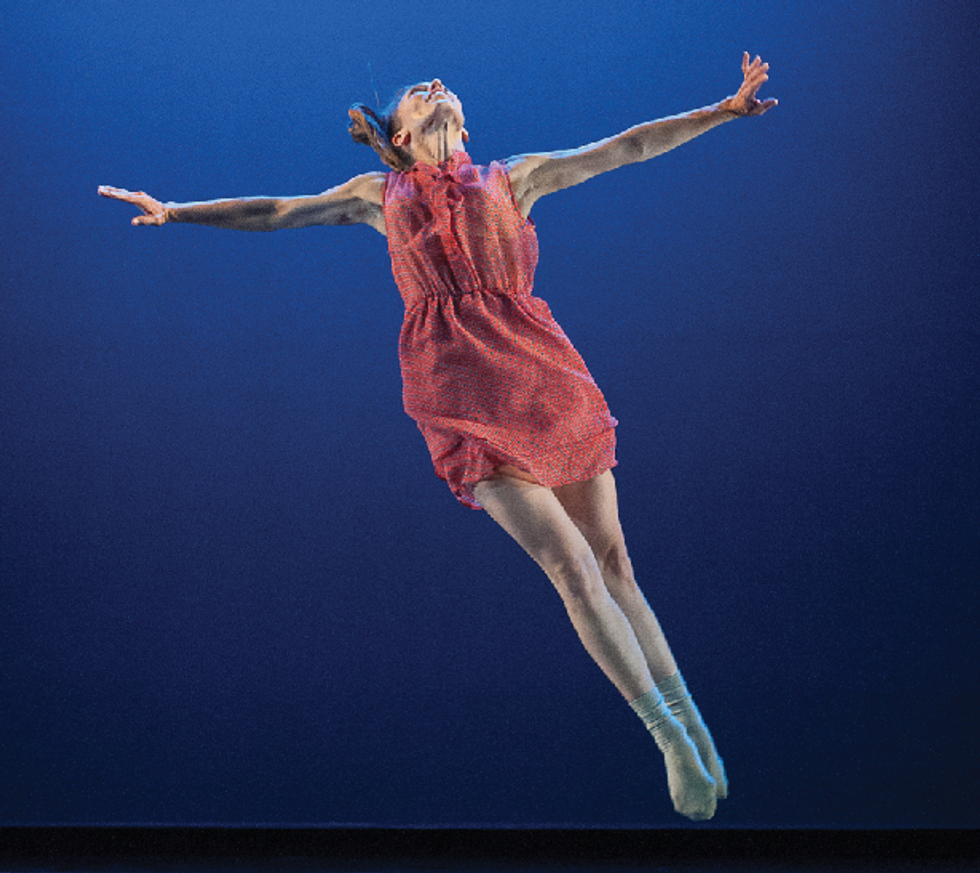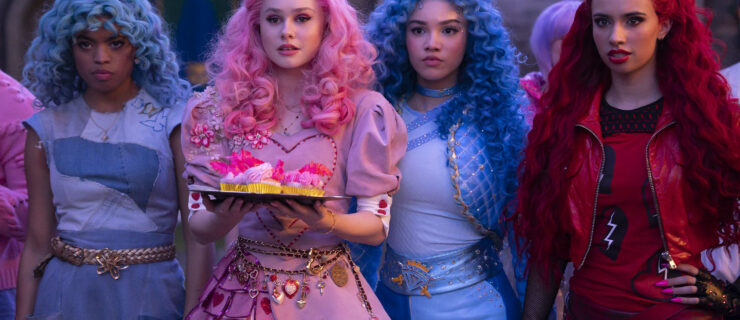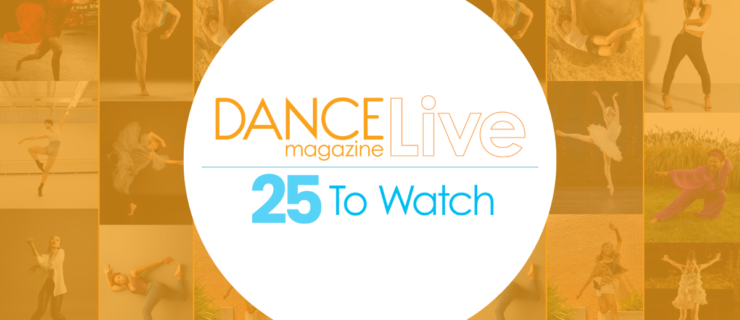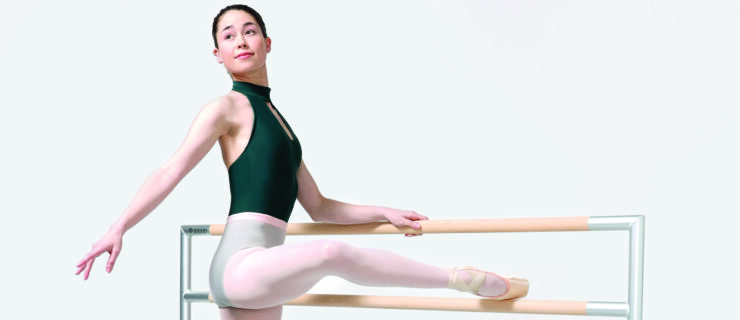The Hard Truths: Dancers Share the Toughest Lessons They Had to Learn.
Most professional dancers are so passionate about dance they can’t imagine doing anything else. But the dance world isn’t always an easy place to navigate, even for the most dedicated, talented artists. DS asked eight pros to share the hardest lessons they’ve learned—and how those lessons have helped them grow.
For casting directors, likeability often trumps talent.
Lillian Barbeito, Co-artistic director, BODYTRAFFIC

(by Christopher Duggan)
Now that I’m on the other side of the dance spectrum where I’m holding auditions, I’ve learned that getting a spot in a company isn’t all about having the right look and the right skills. Choosing dancers is a lot like choosing your friends—you just have chemistry with people.
One of the biggest challenges I faced when I was auditioning was overcoming self-doubt so I could be myself and connect with the people who were assessing me. I love it when people make eye contact. When you go into an audition, or into the studio to train, walk in with a smile. Dancing is a form of human expression. Everyone wants to be around happy, inspired people. It’s important to take your training seriously, but you can’t take yourself too seriously.
You’ll probably never feel like the best dancer in the room.
Karina González, Principal dancer, Houston Ballet

(by Amitava Sarkar)
Because we’re always searching for perfection, we spend a lot of time judging ourselves. I think every dancer has that little voice in her head that says, Oh, I’m not good enough, or I’m not getting better, or The dancer next to me is better than me. Even now I’m still fighting those thoughts.
I just did George Balanchine’s Ballet Imperial, and it was a big challenge because I haven’t done many Balanchine works. In the beginning, it was hard to believe in myself. But I had an amazing ballet mistress, Louise Lester, who worked with me and helped me bring my confidence back. And it was one of the best moments I’ve had onstage.
I’m still learning to trust myself and count my blessings. I’m learning to take those negative thoughts and use them to say, “OK, I’m going to push more, harder.” I know now to tell myself, “I have this opportunity because they trust me.”
When you win a TV dance competition, the hard work has just begun.
Joey “SlimFly” Arevalo, Member of the Elektrolytes, winners of “America’s Best Dance Crew” Season 7

(by Kareem Black/ MTV/ Warner Horizon)
A lot of people think that once you’re on a TV show, everything is easy from there. But it isn’t.
It’s been more than a year since we won “ABDC,” and we’ve done gigs and had a lot of requests to teach and choreograph as a group. But now, everyone in the crew also has personal goals they want to achieve. I’m trying to get myself out there more as an individual. I’m doing a lot of dance battles and I’m looking into getting an agent, because you really need one to have an “in” on auditions. Some doors have opened since the show—but you have to push to see how far they’ll open.
You won’t be fully prepared for every performance.

(by Beau Pearson)
Allison DeBona, Soloist, Ballet West
Last year, when the “Breaking Pointe” crew was here and we were dancing Paquita, I felt insecure onstage for the first time in my professional career. I’d learned three Paquita variations, but then I was thrown on for a variation I hadn’t learned. I thought, There’s no way I’m going to look good in this variation. I’m 5′ 9″ and this is for a short girl.
As a professional, there are going to be times when you don’t feel sure of yourself. But you have to find the courage to keep going, because it’s no longer just about you. You’re representing your company and your boss. If he gives you a role on opening night, that’s the ultimate compliment—and he’s relying on you to do well.
In the end, that experience actually rejuvenated me. It was totally freeing. Since then, pretty much every time I’ve been onstage, I’ve had a ball.
You’ll hear “no” at auditions more than you’ll hear “yes.”

(by Gorman Cook)
Maeghan McHale, Company member, Giordano Dance Chicago
It’s become a running joke that I auditioned four times before I got into the scholarship program at Giordano Dance Chicago. At the first two auditions, I wasn’t sure who I was as a dancer or a person. Once I found that, I was able to show what I was capable of, and the company directors were able to see it. They were like, “Oh, there she is.” They knew I could do more—I just didn’t realize it yet.
In the end, whether or not you’re given the opportunity right away doesn’t define you. If you’re told “no” once, don’t give up. Dancers are stronger than most people realize. If you know you want something, fight through the disappointment.
You might have to make your own work.

(by Vince Trupsin)
Sarah Reich, Tap dancer
One of the most difficult things about the dance industry is paying your dues. If you’re new to the scene, you have to take class every day and go to every workshop and festival. And you might have to do some free shows.
The phone isn’t always going to ring. You have to be a go-getter. I’m over 21, so I go to jazz clubs where dancers jam with bands. I went to a gorgeous place once to perform with some friends, and the owner and I started talking. Eventually I said, “Why don’t we have a tap night here?” She said, “That sounds awesome. Get it all together.” You have to be really proactive.
Even after you’ve made it, you might still need to wait tables occasionally.

(courtesy Charity Lynne Baroni)
Charity Lynne Baroni, Commercial dancer, currently on tour with Selena Gomez
After my first tour with Taylor Swift, I came back and expected to start booking more dance jobs immediately. But it turned out I was basically back to square one. In the dance industry, it’s not like if you book one big job you’re set forever. I was waiting tables again and taking classes every day and going to every single audition. Then, six months later, I booked another tour, and six months after that one I booked my next one. But all that teaches you to stay humble. You keep working for it because you love it.
Your non-dance friends will have a hard time “getting” what you do.
Ashley Murphy, Company member, Dance Theatre of Harlem

(by Rachel Neville)
By the time you become a professional dancer, you’ve spent most of your life striving toward one goal. Once you finally make it, you expect people to acknowledge the work you’ve done. But dance doesn’t get as much appreciation as some of the other art forms. Artists like Beyoncé and Rihanna—people have a better understanding of their craft, and that’s why they pay hundreds of dollars to see them. But dancers often perform for half-full audiences. And they definitely don’t get paid as much as people like athletes.
You can’t let that get to you. And there are ways to help audiences better understand your art. Whenever I talk about dance to non-dancers, I explain to them that it’s a real job. They’re doctors or lawyers; this is my career. I tell them, “You started training to be a doctor when you were in your twenties. I’ve been training to be a dancer since I was 3 years old.” Then they’re like, “That’s amazing!”




